The most dangerous places in the world to be a mother
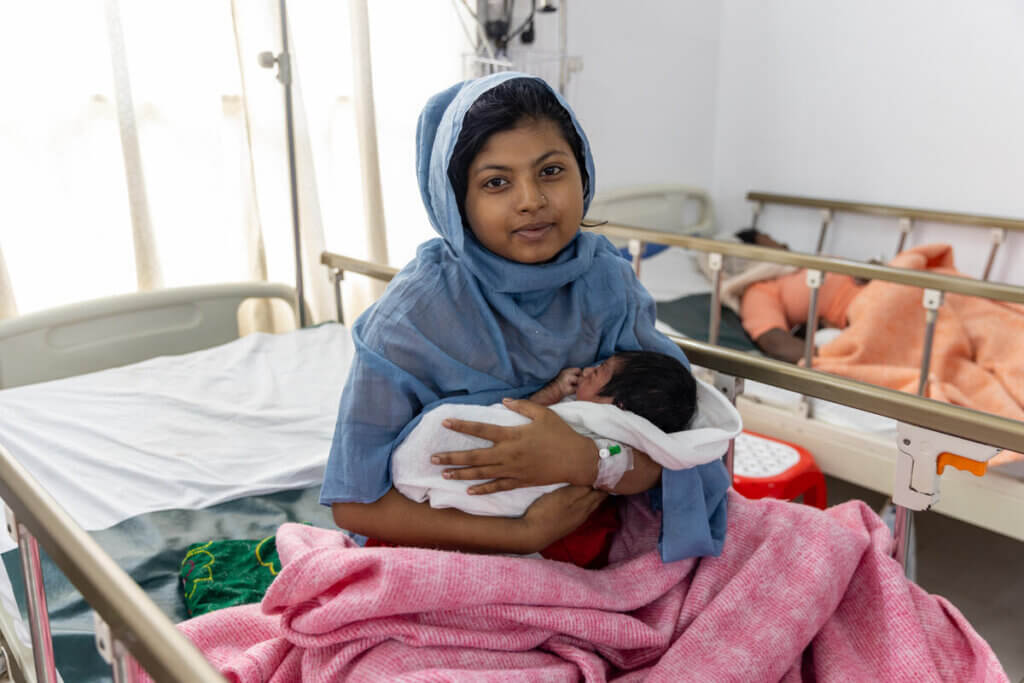
This month we’re celebrating motherhood and the resilience of mothers everywhere – but we cannot fail to acknowledge the dangers that come with motherhood. Worldwide, a woman dies from childbirth or pregnancy complications every 2 minutes. In some of the most dangerous places in the world to be a mother, that metric is even higher.
Here are just some of the millions of stories of mothers who are fighting for survival for both them and their children around the world.
Mothers in Gaza continue to suffer as the health system collapses
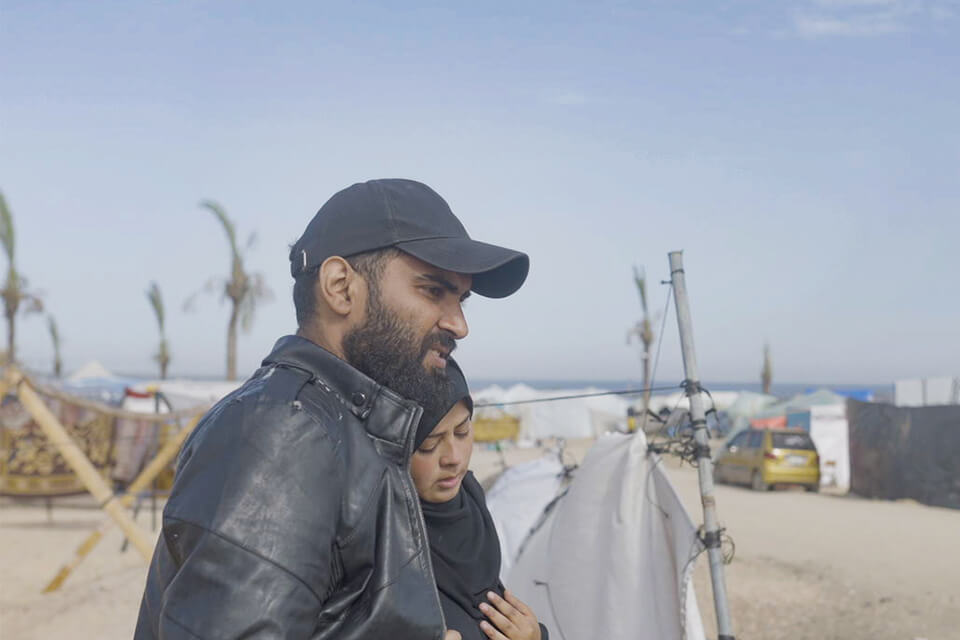
7 months into the humanitarian catastrophe in Gaza, conditions only continue to worsen for new and expecting mothers. After months of extremely limited flow of supplies, 72% of all new mothers in Gaza are struggling to breastfeed their babies because they do not have enough to eat themselves. And as hunger, stress, and exhaustion add to more pregnancy and childbirth complications, women are forced to make do with just 3 maternity hospitals in all of Gaza.
When Malak first found out that she was pregnant at the end of last summer, she was filled with joy. She pictured her and her husband picking out tiny baby clothes and celebrating the birth of the baby, who would be the first grandchild in her family, with all her loved ones.
She watched these dreams crumble when the conflict escalated in October.
For two-thirds of her pregnancy, Malak could hardly find enough food to eat, much less access prenatal care. When her contractions began, she and her husband made the decision to travel 3 hours out of Rafah to access a different hospital, because they knew the Rafah hospitals would be too overwhelmed. But when she arrived at Al-Nusairat 3 hours into her labor, she found that the hospital was also filled past capacity.
“As soon as I sat down, they got me back up from the bed because there was an emergency case more urgent than mine. So I got up and gave her my place, even though I was also in labor. When she finished, they let me use the bed,” Malak shared with us. She safely gave birth to her son, but now worries about how to keep the newborn warm, fed, and safe.
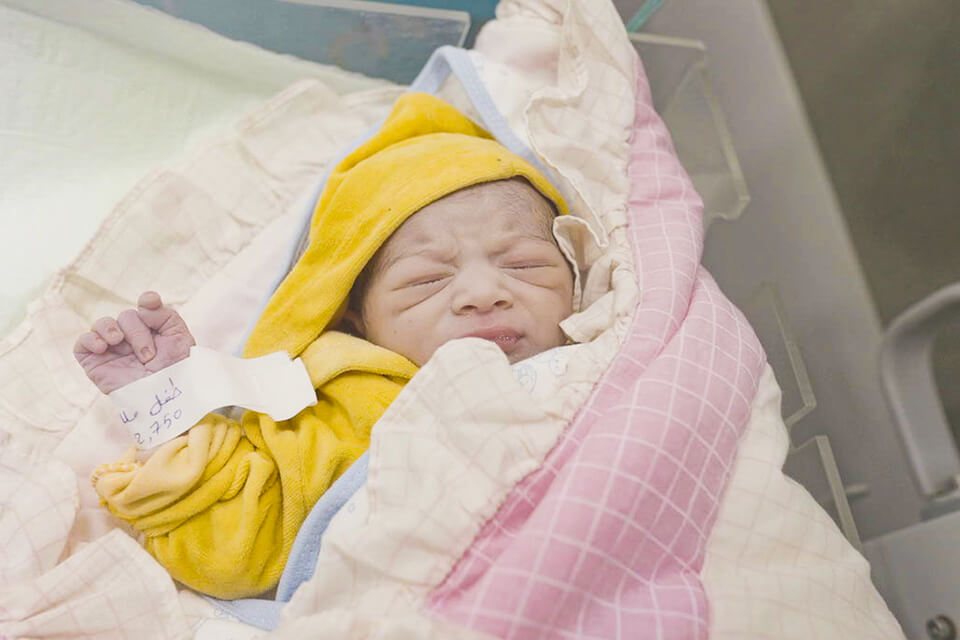
Despite all the pain and stress that Malak withstood, she was still more fortunate than many other mothers in Gaza. With 155,000 pregnant women and new mothers currently in Gaza, the last remaining hospitals in the area are struggling with the horrifying reality of there not being enough beds, staff, or even medicines. Pregnant women are giving birth without anesthesia and babies are being born prematurely due to stress and exhaustion.
“It was exhausting – we handled 78 cases in one night,” one midwife shared with us. “This is a result of terror and anxiety […] leading to premature birth. Such cases are a challenge even on ordinary days – so imagine now. It’s a tragic situation.”
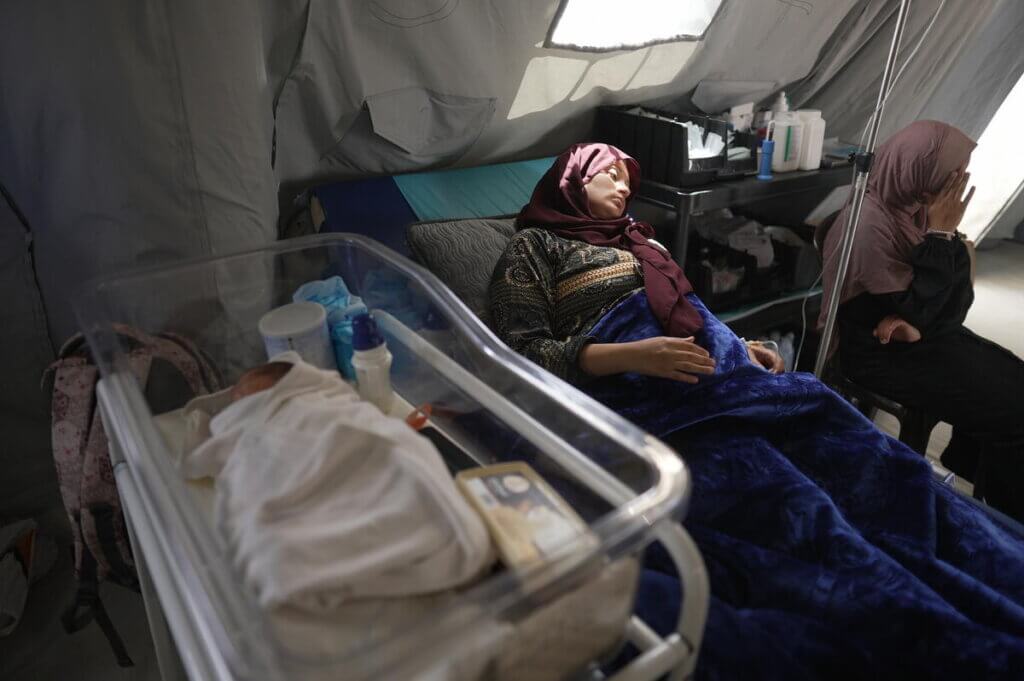
Since the crisis began in Gaza, UNFPA has supported half of all births thanks to the support of people like you. We also deployed our first maternity mobile health unit in Gaza last month so we could help take complicated emergency obstetric cases.
Pregnant women in Armenia flee for their lives
When territorial violence reignited in Karabakh in September, thousands of pregnant Armenian women were caught in the crossfire. Marta was heavily pregnant when the bombs began to fall in her area. She had no choice but to take her four children and flee for safety – knowing that the journey would be strenuous and potentially deadly.
When they were nearing the border of Armenia, Marta began to experience labor pangs a month early. She kept moving, knowing that to stop would be to give birth on the side of the road. Finally, she crossed the border to safety. An ambulance took her to a UNFPA maternity hospital, and her labor quickly advanced.
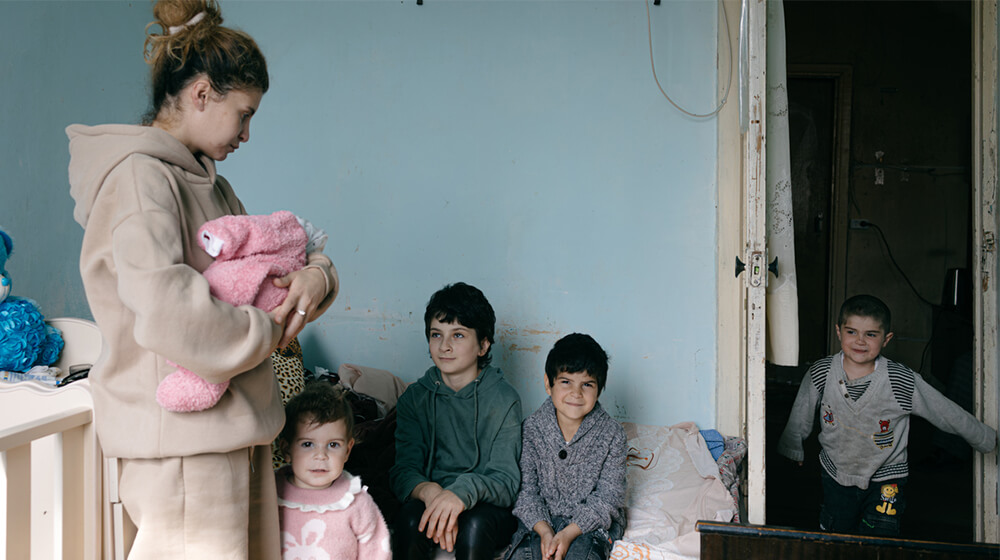
“The doctors were pessimistic. They were convinced that my child would not survive,” Marta shared with us. “I was weak, bleeding – but I insisted that my son was going to be born no matter what.”
True to her request, Marta’s baby was born safely despite all the obstacles. Her case mirrors a trend that has been seen across the Armenian border: 50% of mothers are giving birth early due to stress and malnutrition.
Motherhood in the face of climate emergencies
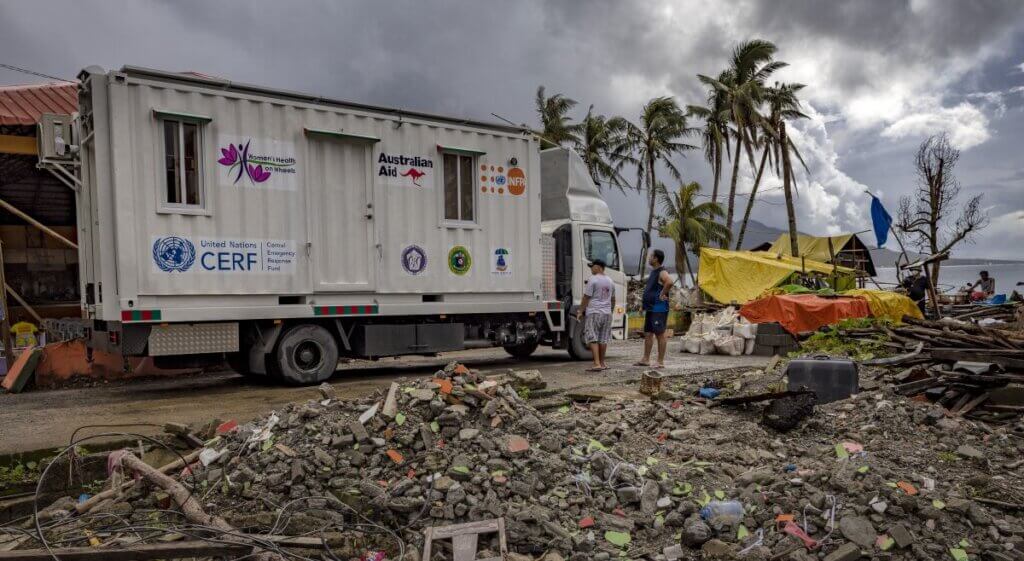
Around the globe the impacts of climate change are already being felt – and mothers are among the most vulnerable to the impacts. In Yemen, searing droughts are forcing people to abandon lands that have been theirs for generations and go to overcrowded displacement camps. In places like the Philippines, extreme weather events are only growing more intense and destructive.
When the super typhoon Rai struck the Philippines, Mariel went into labor. In the wake of the destruction and rubble, the odds were not stacked in Mariel’s favor – but thanks to our supporters, UNFPA launched a mobile birthing clinic as soon as it was safe to do so. Mariel was the first mother to give birth in the clinic, and both she and her baby survived.
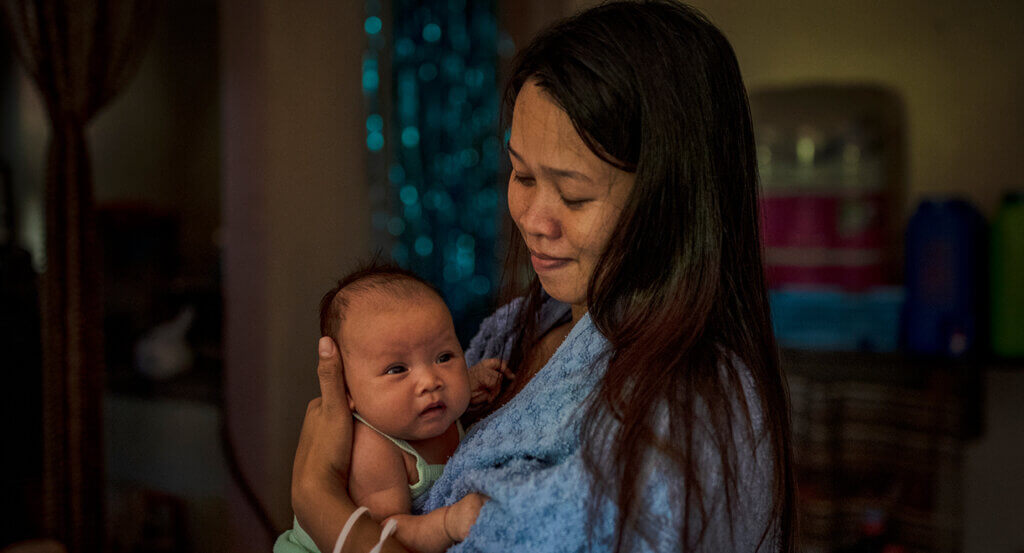
Making motherhood safe, no matter what
Thanks to our supporters, we are on the ground working to give pregnant women and new mothers the care they need, no matter what. In 2022, that work resulted in:
– 30,800 maternal deaths prevented
– 1.4 million babies safely delivered in fragile humanitarian settings
– 36,000 UNFPA staff trained to provide maternal care
Thank you for all that you have done to help make motherhood safer, both in this season of motherhood and every month after.